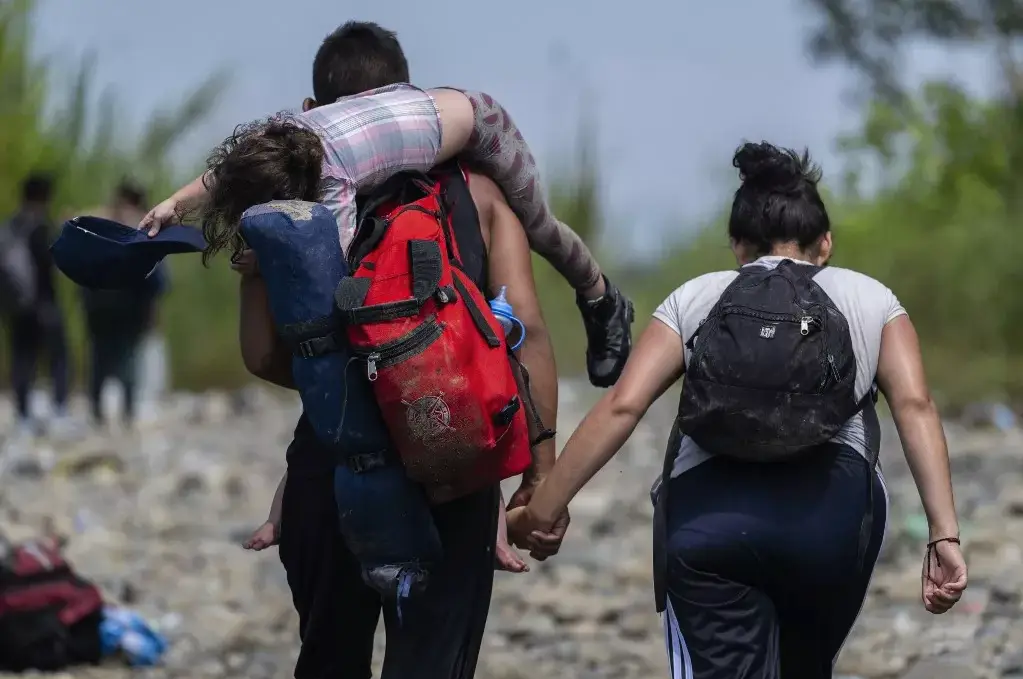After the Temporary Protective Status decree was announced in 2021, I wrote about Venezuelan migrants like Danexi Andrade, who were poised to benefit from it. As an undocumented migrant who fled from Venezuela to Colombia, Andrade had to join the ranks of between 51%-90% of her fellow Venezuelans who worked in the informal economy, in her case selling coffee and snacks on the streets of Medellín and earning roughly $5.50 per day.Temporary Protected Status, however, as she put it, would change everything. “I’ll be able to find work,” she said,“Everything will be different.” While the program was far from perfect, it was still (rightly to my mind) hailed throughout the world and Colombia was seen as a model for how to treat migrants justly.
Since Gustavo Petro took office, however, this has changed. As Nastassja Rojas Silvahas noted, “Since its inception, the government of Gustavo Petro … has implemented measures that have, rather than benefiting the Venezuelan migrant population in Colombia, led to regressive actions.” Petro allowed the Temporary Protective Status measure lapse in November 2023. He also eliminated the Office of Border Management (the office that worked on Assisting and Integrating migrants in Colombia). And, while it is true that the Administration announced the creation of a new regularization mechanism for legal guardians or representatives of Venezuelan children in Colombia (PEP-TUTOR), it is already causing confusion and garnering criticisms for having stricter requirements than those for obtaining Temporary Protective Status, for, again, being a temporary measure (only granting legal status until May 30, 2031), and for only applying to those caring for children who already have Temporary Protective Status.
These (and other) measures leadvarious experts to argue that migration policy is not a priority for the Petro Administration (at least not compared to his desire to have good relations with Nicolás Maduro’s government). Petro does not acknowledge the realities of Venezuelan migration; either characterizing it as a temporary issue related to migrants in transit through the Darien Gap in route to the United States or claiming that – despite the mass migration out of Venezuela beginning in 2015 – Venezuelan migration is the result of U.S. economic sanctions against Venezuela that began in 2019.
In these ways, Camilo Gómez Forero maintains that the Petro Administration is actively trying to “de-Venezuelize” the situation by suggesting that the situation of Venezuelan migrants in Colombia stems from global phenomenon rather than the policies of Nicolás Maduro or his own governmentto remove it from the national agenda. This does not mean that Petro never discusses migration – to the contrary, on April 2025, he requested that the chiefs of the National Police create a policy for inclusion of young Venezuelans into Bogotá in order to prevent them from joining gangs. However, since he blames the need for such a policy on the expected mass deportations of Venezuelans from the United States rather than the projected mass exodus from Venezuela because of Maduro’s latest electoral “victory,” he again implies that the source of the problem is the United States rather than Maduro.
These, and other, actions related to migration have created a situation where Venezuelan migrants are increasingly vulnerable to violence, exploitation, and other forms of oppression under Petro’s Administration. For example, this administration does not have a strong state presence in border regions. As Adam Isaasson and Laura Dibobserve:
“The national government is not doing enough to manage flows, determine who is passing through, or protect people at risk. … Checkpoints, patrols, and detentions are uncommon, but so are humanitarian services and access to protection.”
This lack of state presence in border zones is being filled by armed and criminal groups. The region around the Darien Gap, for example, is controlled by the Clan del Golfo, both the nation’s largest drug-trafficking organization and the group that dominates migrant smuggling. There are several armed or criminal groups, each of whom control one or more of the many irregular crossing points dispersed across the border region with Ecuador.
On the Colombia-Venezuela border, groups like FARC and the National Liberation Army (ELN) – sometimes with members of the Venezuelan security forces — fight over control of territory and illicit activities, resulting in brutal human rights abuses against migrants and other civilians in the region. This situation is worsening as violence between the National Liberation Army and FARC-EMC has exploded in the Catatumbo region,leaving 80 dead in January 2025 alone, causing migrants to flee and displacing thousands of Colombians. While Petro beginning to take some actions in response, his government’s lack of presence and slow response set the stage for this moment and continues to endanger the lives of thousands of migrants and Colombians.
Venezuelan migrants also face pervassive violence throughout the nation.Multiple criminal organizations and armed groups kill, disappear, displace, kidnap, and rape migrants. The International Crisis Group reports that: “human trafficking and sexual exploitation plague border towns (and big cities as well), with women and minors in special danger. Gender-based violence is particularly common at informal border crossings under criminal control”.
In the Darien Gap, “people are routinely robbed, sexually abused, and at times raped.” Beyond the border, migrants frequently face police brutalityand threats from armed groups, criminal organizations, and the Colombian population at large. And Medicina Legalreported that 750 Venezuelans were murdered in Colombiabetween January and October 2024.
This population has also become more vulnerable to oppression and discrimination under Petro. Whereas roughly63.2% of Colombians openly admitted having a negative perception of Venezuelansduring the election of Petro, a bit over a year later Migration Policy Institute put the number was closer to 80% (though it should be noted that most still support giving Venezuelans access to health care and education and most do not want Venzuelans deported). And government officials, for example, those running for mayor in Bogotá and Bucaramanga, scapegoat Venezuelan migrants for increasing crime and insecurity, despite failing to present evidence to support such claims.
When President Petro took office in August of 2022, Colombia – while imperfect — was nevertheless internationally recognized and praised for its efforts to welcome Venezuelans. The opposite is now true. Because of the Petro Administration’s actions (or lack thereof), Venezuelan migrants in Colombia withstand increased injustice in the forms of legal vulnerability and instability, violence, xenophobia, and exploitation. Worse, it is doubtful that they are prepared to welcome the projected new wave of Venezuelan migrants. Despite the bleak picture, however, these words are intended to inspire action so that the experiences of migrants improve, and Colombia can serve as a model of migration justice once again.













